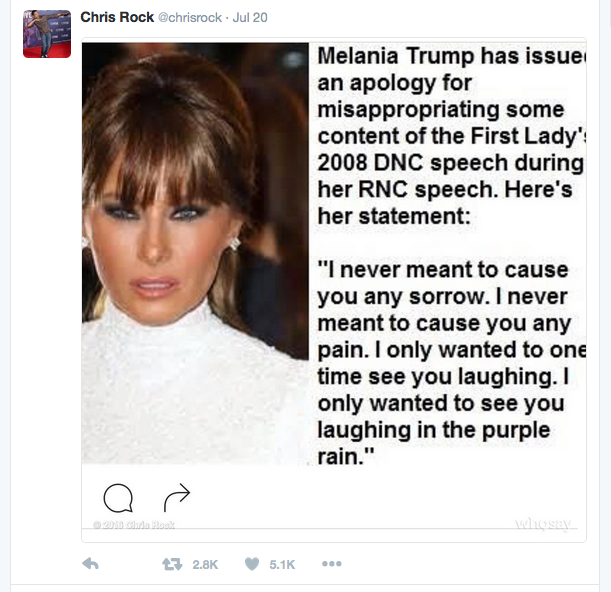Nobody likes a copycat, but plagiarised content can damage the integrity of your brand and potentially lead to litigation, says Michael Jones
Earlier this week Republican presidential nominee Donald Trump’s wife Melania took to the stage at the Republican National Convention in Cleveland, Ohio. She was about to give what was widely considered to be the most significant and high profile endorsement of her husband in his campaign. Until this point Melania Trump had been kept relatively out of the spotlight so this was anticipated to be the moment she would finally reveal her husband’s softer, human side, build engagement with female voters and ultimately show America something it hadn’t seen before.
She was, however quickly accused of using words America had very much seen before after it was alleged her speechwriters had lifted seemingly wholesale chunks of content from a speech given by US first lady Michelle Obama at the Democratic National Convention in 2008.
A true original?
The similarities are there for all to see and do not reflect well on team Trump, despite their protestations that this was simply an unfortunate, coincidental use of language. Imitation may be the sincerest form of flattery and if the allegations this was an act of deliberate plagiarism are true Trump certainly isn’t the only person in politics to do it nor will she be the last. But the reputational damage to Melania Trump, and therefore her husband and his campaign by extension, was immediate. It created a media storm – of both the news and social variety – and devalued Donald Trump’s claims to be an authentic voice in US politics.
Cutting and pasting comedian Chris Rock’s amusing tweet about Melania Trump’s alleged “misappropriation” illustrates the inherent problems of plagiarism. I could have spent the time and effort to create my own joke about Trump here, but it was quicker and easier to let Rock do the hard work for me.
I did, at least ensure Rock got the credit for his joke though. Social media allows us to constantly share and forward other people’s comments or work – it’s simply part of the toolset in modern communications – but their platforms are formatted to protect the original source and ensure accreditation is clear. Cutting and pasting passages of text and trading off them off as your own? Not so much.
The real concern then of course lies with lifting unaccredited content, as has allegedly occurred in Trump’s instance. The problem with this approach is that, not only is plagiarism morally and ethically wrong, let alone lazy – as any writer worth their salt will tell you, content can be rumbled as soon as it has an digital footprint. Anything on the internet, be it text or video, can be checked and traced, taken down and used in evidence against you at a later date. Even an eight-year-old speech cannot be plundered when the internet has given the world an inexhaustible digital memory.
The genuine article
Google’s latest algorithms reward original, unique content for search engine optimisation (SEO) purposes. Google has stated it only takes a few pages of duplicated content for it to ‘hold down’ traffic on an otherwise strong-performing website, and advises duplicated pages be deleted by the user or rewritten.
In short, if content is copied, rehashed or ripped off from another source it can damage the credibility of the person or business posting it.
Originality always wins out, both in politics and business. For savvy companies, using a B2B-focused content marketing platform like Content Cloud can pay dividends in this regard. As well as offering access to hundreds of professional writers, designers and video producers, whose day job is to provide unique content in a variety of different sectors, Content Cloud’s inbuilt plagiarism checker ensures any content going through the is vetted for originality. If text has been duplicated it flags up the offending lines, and identifies the source immediately.
So if you’re working on new content and ever get tempted to tap those cut and paste functions on the keyboard, just remember to copy Michelle, not Melania, and keep it original. In this instance Obama really is the first lady, because she delivered that speech first. And first is definitely best.










